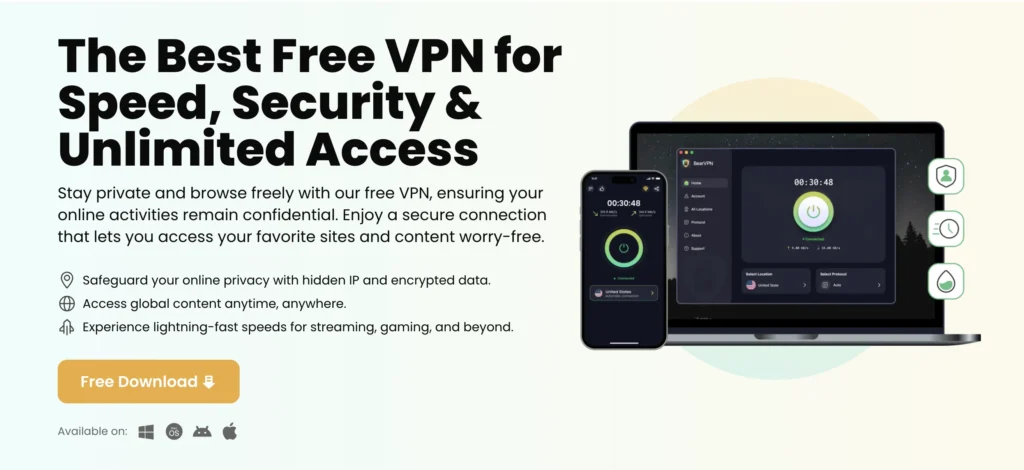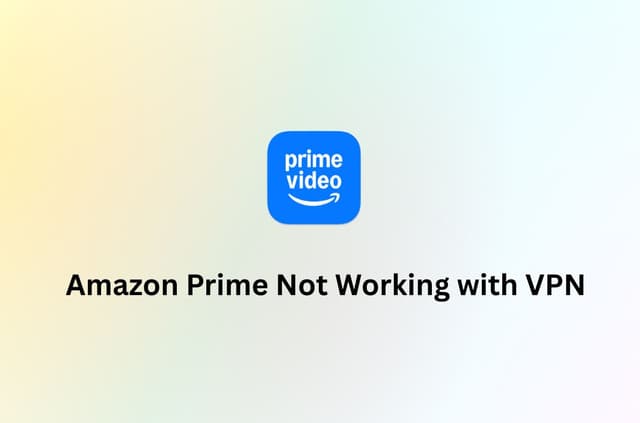There’s nothing more frustrating than settling in to stream your favorite show, access a restricted website, or protect your online privacy, only to find out ProtonVPN not working as you expected. ProtonVPN is a fantastic and popular choice, especially when it comes to free VPN for PC and phones. Its reputation for security and privacy makes it a top pick for many users. However, as the saying goes, “The higher the tree, the stronger the wind.” With its growing popularity, ProtonVPN faces more challenges and scrutiny, leading to occasional hiccups.
If you’re reading this, chances are you’re dealing with some ProtonVPN issues and looking for answers. Don’t worry—I’ve got you covered. In this post, we’ll dive into the reasons why ProtonVPN might not be working, where it performs well (and where it doesn’t), and how to fix these issues. Plus, I’ll introduce you to a lesser-known alternative that might just save the day.
Why Is ProtonVPN Not Working?
Let’s troubleshoot. There are several reasons why ProtonVPN might not be connecting for you. Here’s a breakdown of the most common culprits:
1. Network Interruptions
If your internet connection is spotty, ProtonVPN might struggle to establish or maintain a connection. VPNs rely on a stable network to function properly, so if your Wi-Fi is acting up, the VPN will too. A quick test? Disable ProtonVPN and see if your internet works without it. If it doesn’t, your network might be the problem.
2. Outdated Software
ProtonVPN, like any other software, needs regular updates to stay compatible with its servers and the latest security protocols. If you haven’t updated the app in a while, you might run into issues. Outdated software can also make you more vulnerable to security risks—double yikes.
3. IP Address Blacklisted by Websites
Some websites and services are getting smarter at identifying VPN traffic. If ProtonVPN’s IP addresses are flagged or blacklisted, you might not be able to access certain platforms. This is especially common with streaming services like Netflix, Hulu, and BBC iPlayer, which actively block VPN IPs.
4. Country-Specific Censorship
If you’re in a country with strict internet censorship (hello, China, Russia, or Iran), ProtonVPN might not work as expected—or at all. Governments in these regions often block VPN traffic to limit access to foreign content or maintain control over online activity.
5. Server Overcrowding
ProtonVPN is a popular choice, and with popularity comes crowding. If too many users are connected to the same server, performance can take a hit. Slow speeds or dropped connections? This might be the reason.
Where is ProtonVPN Blocked?
ProtonVPN has a solid global presence, but it’s not invincible.
Let’s break it down.
- China: The Great Firewall is no joke. While ProtonVPN does offer some tools to bypass censorship, it’s hit or miss. Many users report inconsistent performance.
- Russia: With increasing restrictions on VPNs, ProtonVPN may face connectivity issues here.
- Middle East (e.g., UAE, Saudi Arabia): Heavy censorship and VPN blocks make it challenging for ProtonVPN to function consistently.
- Iran and North Korea: Forget about it. These countries are notoriously hostile to VPNs.
How to Fix ProtonVPN Not Working?
Now that we know the “why,” let’s tackle the “how.” Here are some tried-and-true solutions to get ProtonVPN back on track.
1. Check Your Internet Connection
Start with the basics. Ensure your internet is working without the VPN. If your connection is unstable, reset your router or switch to a different network.
2. Update the ProtonVPN App

Running an outdated version of ProtonVPN? Head to your app store or the official ProtonVPN website and download the latest version. Updates often include bug fixes and compatibility improvements.
3. Switch Servers
If one server isn’t working, try another. ProtonVPN offers servers in multiple countries—experiment with different locations to find one that works. For example, if a US server is blocked, try connecting to one in Canada or the UK.
4. Enable Secure Core
ProtonVPN’s Secure Core feature routes your traffic through multiple servers, making it harder for websites or governments to block your connection. This can help in high-censorship regions.
5. Try a Different Protocol
ProtonVPN supports several VPN protocols (e.g., OpenVPN, WireGuard). Switching protocols in the app settings can sometimes resolve connectivity issues.
6. Contact Support
When all else fails, reach out to ProtonVPN’s support team. They’re responsive and can provide guidance tailored to your issue.
BearVPN: Best ProtonVPN Alternative for iPhone
If you’ve tried everything and ProtonVPN still isn’t working, it might be time to explore alternatives. Enter BearVPN—a lesser-known gem in the VPN world.

Here’s why BearVPN is worth considering:
- Less Popular, Less Targeted: Because BearVPN isn’t as widely used as ProtonVPN, its IP addresses are less likely to be blacklisted by websites or governments.
- Fewer Users, Less Crowding: With a smaller user base, BearVPN’s servers tend to be less congested, resulting in faster speeds and more reliable connections.
- Great for Censorship: BearVPN has a solid track record of bypassing censorship in countries like China and Russia. It’s designed to fly under the radar.
Switching to BearVPN is simple. Just download the app, sign up, and connect to a server. It’s user-friendly and perfect for those who want a hassle-free experience.
Final Thoughts
When ProtonVPN is not working, it’s easy to feel frustrated and stuck. But with a little troubleshooting and some creative problem-solving, you can get back online in no time. Whether it’s switching servers, updating the app, or even trying an alternative like BearVPN, there’s always a solution.
At the end of the day, no VPN is perfect. Each has its strengths and weaknesses, and the key is finding one that works best for your needs.



